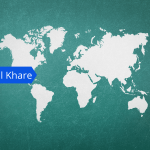Career counseling is commonly seen as a one-way opportunity to rectify an individual’s lack of direction in career or job. Yet, the prospective long-term impact of such counseling is often not well recognized. This research qualitatively studied the relationship between the success rates gained through the career planning process and the extent of the participant’s satisfaction achieved at the end of the program. Findings showed that although some participants may find the counseling helpful, the satisfaction level was somewhat low due to the fact that the counseling was not centered on career planning.
A career planning counseling session can have a tremendous positive impact on the lives of young people. It allows them to determine their career goals and aspirations. The session can also involve building relationships with others who are more like-minded. Throughout the program, students make progress through four main steps: preparation, action, reflection and integration. All these steps are important, but what is the most important part?
Most programs are focused on improving access to career counseling. Programs focused on increasing access and effectiveness are usually student-centred and focus on reducing cost. However, this approach does not necessarily address one of the most important aspects of career counseling: its effectiveness. In fact, some of the most successful programs addressing cost-effective interventions focus on decreasing cost without compromising quality. This is because cost-effective interventions can reduce costs while maintaining quality.
This chapter provides an overview of the importance of content and format in career development counseling. The summary compares two typical formats of counseling: face-to-face and online. The analysis concludes that although some students enjoy face-to-face communication, many view online interactions as impersonal and boring. However, students who prefer face-to-face interaction are often unable to attend scheduled appointments. Online interaction is therefore a valuable addendum to this type of professional help for career guidance and career transition planning.
This chapter focuses on four key strategies to improve the process of career counseling. It outlines the need for counselors to be aware of the barriers to entry for some careers. Career counselors also need to evaluate their own practice. Finally, it discusses the role that technology has played in the development of effective formats. The summary suggests that the development of new digital tools may offer much needed opportunities for career counseling.
This chapter provides an overview of the benefits of hiring professionals for contingency planning in contingency planning. It identifies five key benefits for employers to offer these services. It refers to other related strategies, such as matching clients with qualified professionals, identifying best practices for career planning and developing long-term career plans. The analysis concludes by referring to a review of case studies to show that using these strategies can increase employers’ profits. Overall, this is an interesting, useful and important chapter that offers useful guidelines for both employers and employees with regard to career counseling.
This chapter includes a brief summary of career counseling resources and a recommended referral for potential clients. The summary offers tips for using career counselors to improve their clients’ career prospects. The recommended resource is a checklist of resources and a brief description of the resources.
This chapter provides a brief description of five strategies for employers who want to improve their hiring practices and make career counseling more effective. The strategies are designed around three main points: match clients with qualified professionals; develop long-term career plans; and evaluate and monitor the effectiveness of these plans. The report concludes by describing the need for employers to consider these issues and offering useful tips for using them. It is an interesting, important and relevant guide for career counselors to help their clients.
Head office address:
Suite 1803, Al Moosa Tower 2,
Sheikh Zayed Road, Dubai, UAE.
Call for help:
+971 4 355 4850
Mail for information:
anilkhare3@gmail.com







